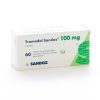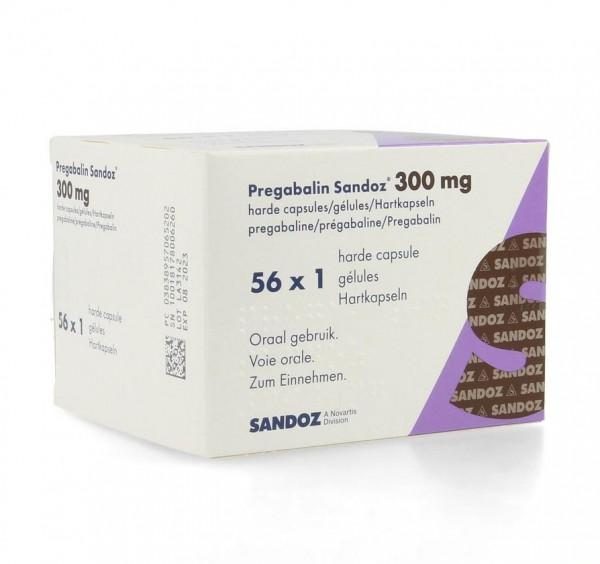Product Description: Pregabalin
Pregabalin, often known by its brand name Lyrica, is a medication used to treat a range of conditions such as epilepsy, fibromyalgia, neuropathic pain, and generalized anxiety disorder (GAD). This substance falls under the classification of a gabapentinoid and is listed as a prescription-only medication in most countries. Pregabalin operates as an analgesic, anxiolytic, depressant, anticonvulsant, and, interestingly, has also been found to possess nootropic effects.
As a gabapentinoid, pregabalin works primarily at the α2δ (alpha-2-delta) subunit-containing voltage-dependent calcium channels in the central nervous system. It does not bind directly to GABA receptors but increases the density of GABA transporters, enhancing GABAergic transmission, which can influence the overall neurological activity. Additionally, it also reduces the release of several neurotransmitters, including glutamate, norepinephrine, and substance P.
Pregabalin has a similar chemical structure to the inhibitory neurotransmitter gamma-aminobutyric acid (GABA), although it does not directly stimulate the GABA receptors or influence GABA uptake or degradation. It is also noteworthy that, unlike some other medicines used to treat seizure disorders, pregabalin does not have any known sodium channel activity or negative effects on dopamine receptors.
Uses and Indications
Pregabalin has several applications in the medical field due to its varied effects. It has approval for the treatment of the following conditions:
- Neuropathic Pain: This is a form of chronic pain caused by damage to the nerves. Pregabalin is indicated for adults to treat peripheral and central neuropathic pain.
- Epilepsy: It is used as an adjunctive therapy in adults with partial seizures with or without secondary generalization.
- Generalized Anxiety Disorder (GAD): Pregabalin has demonstrated efficacy in treating GAD in adults.
- Fibromyalgia: It is approved for the management of fibromyalgia, a condition characterized by chronic widespread pain and heightened pain response to pressure.
Dosage
The dosage of pregabalin depends on the individual and the condition being treated. Always follow the guidance of a healthcare provider for accurate dosage information. However, general guidelines suggest the following:
For Neuropathic pain, the recommended starting dose is 75 mg two times a day, which can be increased to 150 mg two times a day within one week based on efficacy and tolerability. The maximum dose of pregabalin for treating neuropathic pain is 600 mg per day.
For treating epilepsy, the starting dose can be 75 mg two times a day or 50 mg three times a day. This dose can be increased to a maximum dose of 600 mg per day if necessary and if the patient can tolerate it.
In treating generalized anxiety disorder, the dose may start from 75 mg two times a day and can be increased to 150 mg two times a day within one week if the patient can tolerate the medication and requires more symptom relief. The maximum dose for GAD is 600 mg per day.
For fibromyalgia, the typical starting dose is 75 mg two times a day, which can be increased to 150 mg two times a day within one week based on efficacy and tolerability. The maximum dose for fibromyalgia is 450 mg per day.
It’s crucial to note that if pregabalin must be discontinued, it should be done gradually over a minimum of one week to lessen the potential of increased seizure frequency in patients with seizure disorders. Abrupt or rapid discontinuation may also precipitate withdrawal symptoms.
Safety and Precautions
Patients should be advised to take precautions while using pregabalin, as it can cause dizziness and somnolence, which may increase the occurrence of accidental injury (fall) in the elderly population. It may also lead to other adverse effects, such as weight gain, blurred vision, dry mouth, and swelling in the hands or feet.
Pregabalin is eliminated from the systemic circulation primarily by renal excretion as unchanged drug. So, patients with decreased renal function or undergoing hemodialysis may require a lower dose of pregabalin due to the decreased renal clearance.
There are also some contraindications to the use of pregabalin. It should not be used in patients with a known hypersensitivity to pregabalin or any of its other components. Care should also be taken when prescribing pregabalin to patients with a history of substance abuse due to the potential for misuse and dependence.
Pregabalin should be used with caution in patients with congestive heart failure as it can cause peripheral edema. It’s also recommended to monitor patients for signs of suicidal ideation and behavior and to seek medical treatment if such symptoms occur.
Conclusion
In conclusion, pregabalin is a versatile and effective medication for various conditions, including neuropathic pain, epilepsy, GAD, and fibromyalgia. It should always be used as directed by a healthcare professional, considering the potential for side effects and interactions with other medications. Regular monitoring and communication with the healthcare provider can ensure safe and effective use of this medication.









bruh (verified owner) –
Had it lab tested, it’s legit! Cheapest source I’ve found anywhere and always arrives very quick
IVOLABS –
That’s great to hear that you had a positive experience with Pregabalin and found a reliable source for it. It’s always important to ensure the legitimacy of medications, especially when dealing with chronic conditions. It’s fantastic that you found a cost-effective option that also provides quick delivery. It’s clear that Pregabalin is making a difference for many people dealing with a variety of conditions, and it’s wonderful to hear success stories like yours. Thank you for sharing your feedback!